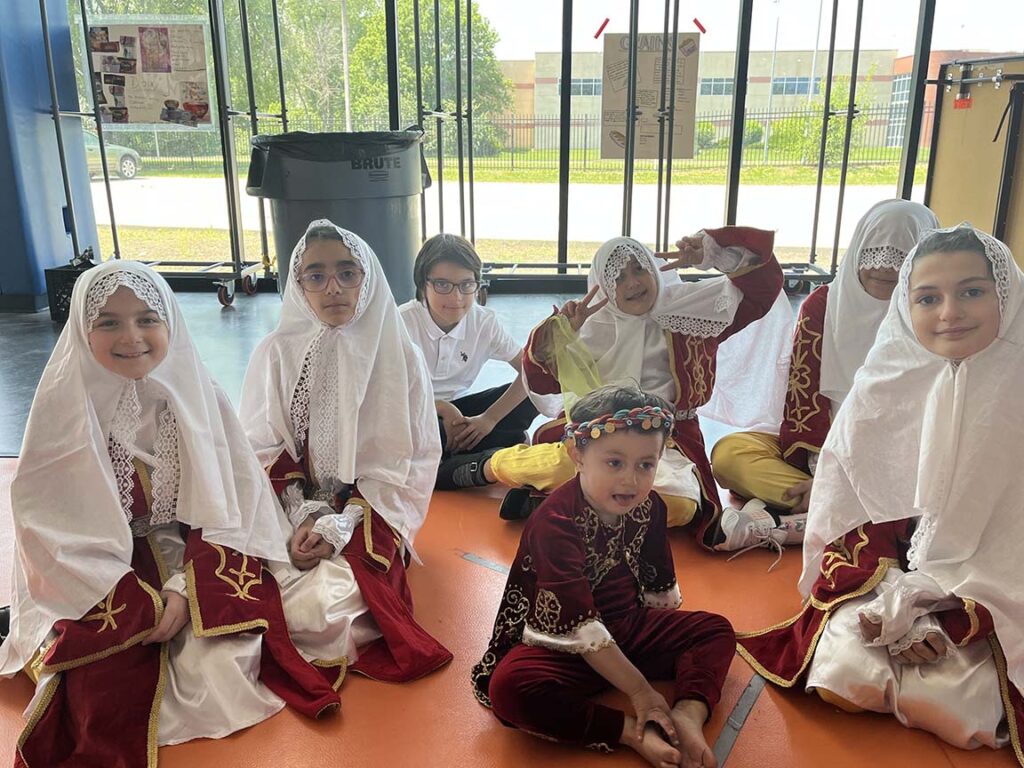
Daisy Garcia-Montoya
Education Reporter
After a three year hiatus due to the COVID-19 pandemic, families and students gathered on Saturday, May 20 for the 7th Annual Multicultural Festival at Frontier Schools.
With clear skies and warm weather, people gathered at the middle school and elementary school campuses for a day full of outside game activities, as well as an opportunity to travel the world through authentic cuisine and performances by students.
Although attendance to the festival was free for all, for $15 dollars attendees received a wristband allowing them to have unlimited food from the different countries’ booths.
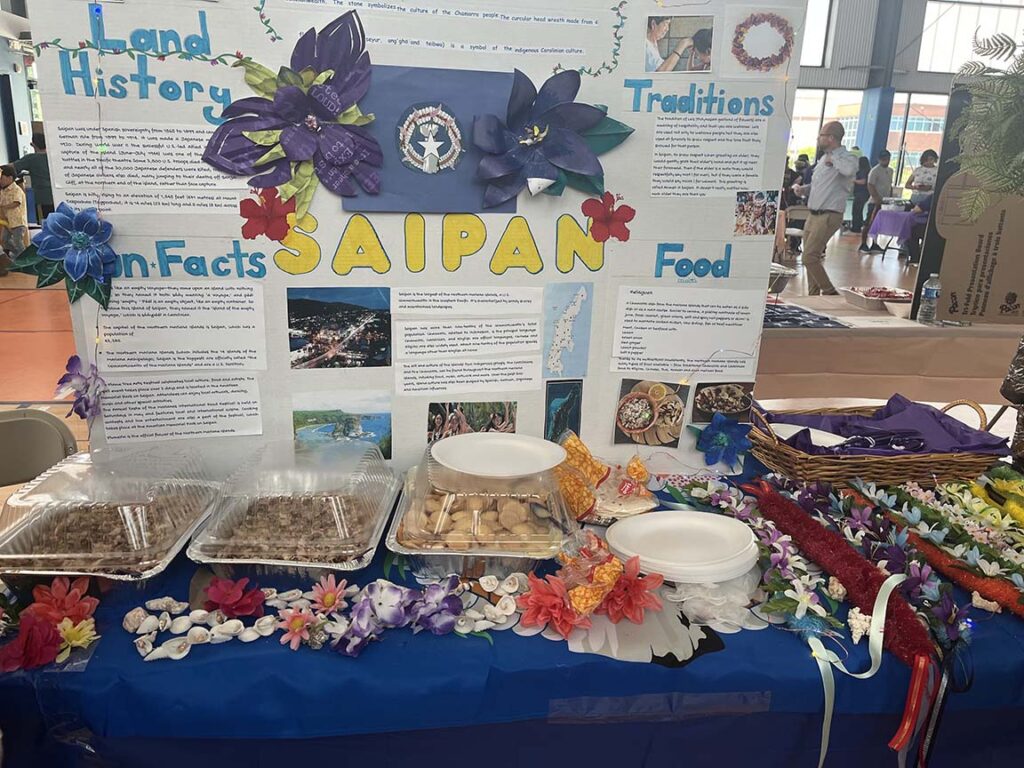
As participants stepped into the school’s gymnasium, families quickly found themselves on a global adventure as they walked around and visited with over 30 booths providing information on the different countries, artifacts and cultural attire, and authentic food prepared by students or their families.
Parents, students, and staff filled the booths representing countries from all corners of the earth including South Korea, Ireland, Turkey, Mexico, Kyrgyzstan, Albania, among many others. Traditional pastries, candies, traditional meals, and drinks were offered for participants to have a taste. As the booth volunteers served the dish for attendees, they also shared information about the dish, including the name and ingredients, so that attendees could learn more about the countries’ culture.
Teacher Assistant Yasmeen Almsari said that the Multicultural Festival gives her the opportunity to teach others about her country Iraq, changing first impression stereotypes they may have.
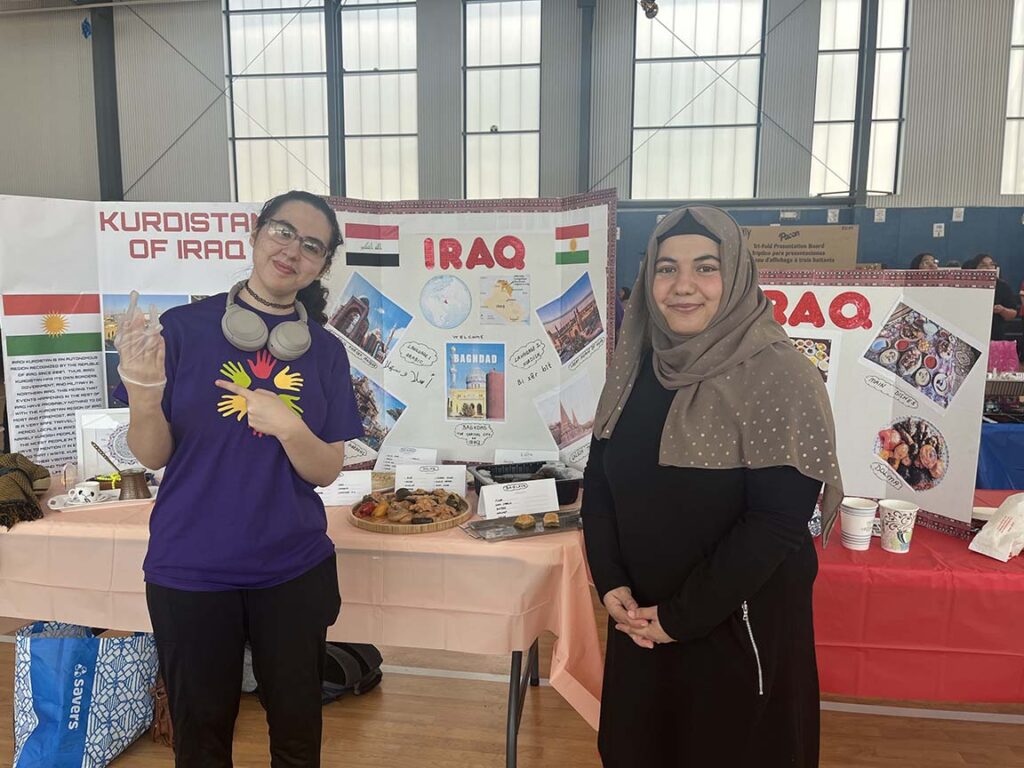
“Well, a lot of people when they hear about Iraq, obviously they hear about the war and the corruption and all this stuff but I’m like, it’s not all bad,” Almsari said. “There’s some fun things in Iraq that people sadly don’t know of, like there’s a lot of places that I would recommend people to visit in Iraq. For example, we have that street in Babylon, we call it the philosopher street because you can go and the street is filled with books that you can buy for cheap prices or go to a coffee shop and have a debate with other philosophers.”
Current juniors Leslie Torres, Leslie Gutierrez and Evelyn Aguila said that this was their first time volunteering at the festival. Serving homemade Mexican tostadas de tinga and refried beans cooked and prepared by them, the students said that this gave them an opportunity to showcase their culture, food, and drinks.
Gutierrez said that the festival was a way for others to learn about different countries, what one can do there, what one can eat, learn facts, and just see the multiple countries that are around the world.
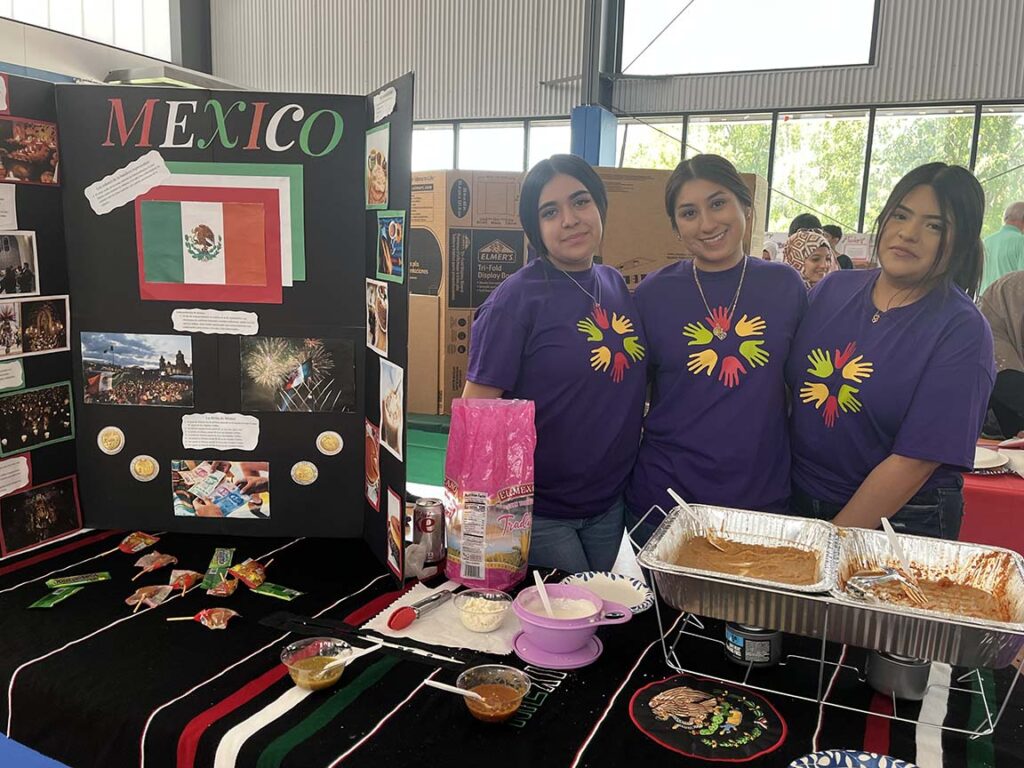
Beyond food, the festival also included performances from various countries including Mexico, where students dressed in quinceañera dresses performed a traditional waltz usually performed during their 15th birthday celebrations. Another group of elementary students dressed in Turkish attire were excited to perform and showcase a piece from their country, citing that they had been practicing for weeks for the festival.
Outside the festival, participants found themselves in the game zone with bouncy houses, an inflatable obstacle course, cornhole, as well as other outdoor games. Additionally, children had the opportunity to get their face painted with various colors and designs, get a caricature painting or a balloon figure. As participants walked around and enjoyed the activities, popcorn and cotton candy were readily available for their taking.
Gregory Rieke, President and Director of New Frontier Education Foundation and co-founder of Frontier Schools, says that this celebration of the diversity and subcultures found in their student body is his favorite time of the year.
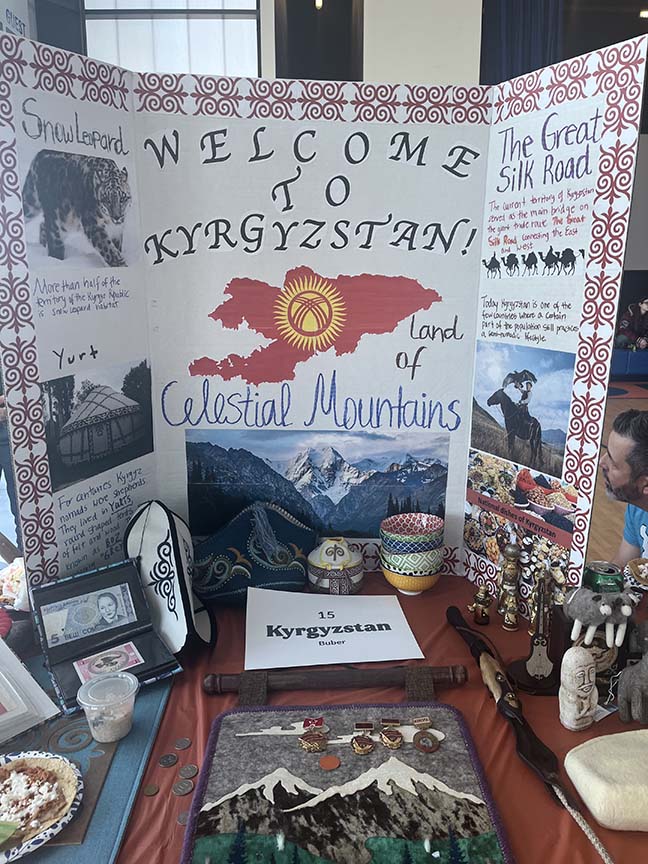
“Students sit next to each other in class and they know they’re from different parts of the world, different ethnic groups but here they can actually see, taste, smell, and feel their differences in a very positive, uplifting way,” Rieke said. “I’m so happy to see the mothers and grandparents take such an involved role in this festival, sharing foods that have been in their families for generations and wearing attire from their communities. At a time, where in our world we tend to look at the other as something that should be pushed away, here we say, ‘Cmon, let’s have a good time and celebrate each other’ so that’s what it represents to me.”
















